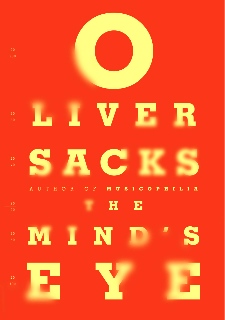- HOME
- INTRO TO THE FORUM
- USE AND MISUSE
- BADLY WRITTEN, BADLY SPOKEN
- GETTING
TO KNOW ENGLISH - PREPARING FOR ENGLISH PROFICIENCY TESTS
- GOING DEEPER INTO ENGLISH
- YOU ASKED ME THIS QUESTION
- EDUCATION AND TEACHING FORUM
- ADVICE AND DISSENT
- MY MEDIA ENGLISH WATCH
- STUDENTS' SOUNDING BOARD
- LANGUAGE HUMOR AT ITS FINEST
- THE LOUNGE
- NOTABLE WORKS BY OUR VERY OWN
- ESSAYS BY JOSE CARILLO
- Please Don’t Wish Me ‘More Power!’
- Let’s Say Goodbye To Those Irritating English Clichés
- Some Guideposts For Positioning Adjectives In English Sentences
- The ‘Off Of’ Bad-Grammar Pandemic
- Long Noun Forms Make Sentences Exasperatingly Difficult To Grasp
- Good Conversationalists Phrase Their Tag Questions With Finesse
- ABOUT JOSE CARILLO
- READINGS ABOUT LANGUAGE
- TIME OUT FROM ENGLISH GRAMMAR
- NEWS AND COMMENTARY
- BOOKSHOP
- ARCHIVES
READINGS IN LANGUAGE
This new section features links to interesting, instructive, or thought-provoking readings about the English language. The selections could be anywhere from light and humorous to serious and scholarly, and they range widely from the reading, writing, listening, and speaking disciplines to the teaching and learning of English.
Transcending the limitations of altered perception of reality
What happens when people find that their perception of reality and language has been profoundly and irrevocably altered? Perhaps you are a novelist who has lost the ability to read but not the ability to write, a stroke victim who can no longer speak but is still able to communicate by sign language, a performance pianist who can write complete sentences but can’t see letters or numbers, or a socialite who has become face-blind and can no longer visually recognize anyone, even your closest friends and family?
The painstaking efforts of people to transcend the limitations of these disabilities are told with riveting clarity, wit, humor, compassion, and hopefulness in The Mind’s Eye (Alfred A. Knopf, 270 pages), a collection of essays by Dr. Oliver Sacks, a professor of neurology and practicing physician who is himself a lifelong prosopagnosic or sufferer of face-blindness.

In The Mind’s Eye, Sacks writes not only about the travails of his subjects who suffer from altered reality but also makes an intimate account of his own disability that was further compounded recently by ocular melanoma or tumor: “People turned into bizarre, elongated, El Greco-like figures, tilted to the left — they made me think of the insectlike Selenites pictured in my edition of H.G. Wells’s The First Men in the Moon. Faces, in particular, would develop translucent, puffy, almost protoplasmic protuberances, like a Francis Bacon portrait.”
In a review of The Mind’s Eye in the November 14, 2010 issue of the Los Angeles Times, Meehan Crist says that Sacks repeatedly insists that one simply could not have the ability to imagine the perceptions of another person—a point that Crist says runs counter to the very spirit and intent of Sacks’s elaborate and detailed case studies of his subjects in the book. But Crist points out that Sacks acknowledges this contradiction later in the book by saying: “There is a paradox here — a delicious one — that I cannot resolve: if there is indeed a fundamental difference between experience and description, between direct and mediated knowledge of the world, how is it that language can be so powerful?”
Says Simon Ings in his review of The Mind’s Eye in the November 21, 2010 issue of Telegraph.co.uk: “It is a measure of his artistry that Sacks slots such funk and anxiety into a book that’s mostly about the plasticity and adaptability of the human brain; a book that busily celebrates the indomitability of people who assemble meaningful, enjoyable lives around strokes, blindings, and other more exotic losses.”
Read an excerpt from Oliver Sacks’s The Mind’s Eye in The New York Times now!
Read Meehan Crist’s review of The Mind’s Eye in the Los Angeles Times now!
Read Simon Ings review of The Mind’s Eye in the Telegraph of UK now!
ABOUT THE AUTHOR:
Oliver Sacks is a physician, best-selling author, and professor of neurology and psychiatry at Columbia University Medical Center. He earned his medical degrees in Queen’s College, Oxford and ended up as a resident in neurology at UCLA. He is the author of ten books, including The Mind’s Eye, Musicophilia, Awakenings, and The Man Who Mistook His Wife For A Hat.
RELATED READING:
In “Storytelling 2.0: When new narratives meet old brains,” an article in the November 16, 2010 issue of The New Scientist, contributors John Bickle and Sean Keating contend that the full collection of a person’s internal and external narratives generates the self we are intimately acquainted with. They explain that these narratives “have linear plots with a fixed past, a present built coherently on it, and a horizon of possibilities projected coherently into the future.” But digital technologies like multi-user domains (MUDs), massively multiplayer online role-playing games (MMORPGs), hypertext, and cybertext all serve to loosen this traditional narrative structure. How then, Bickle and Keating wonder, will people cope with the dizzying digital fictions of the future?
Read John Bickle and Sean Keating’s “Storyltelling 2.0” in The New Scientist now!
Click to read comments or post a comment
View the complete list of postings in this section
(requires registration to post)







